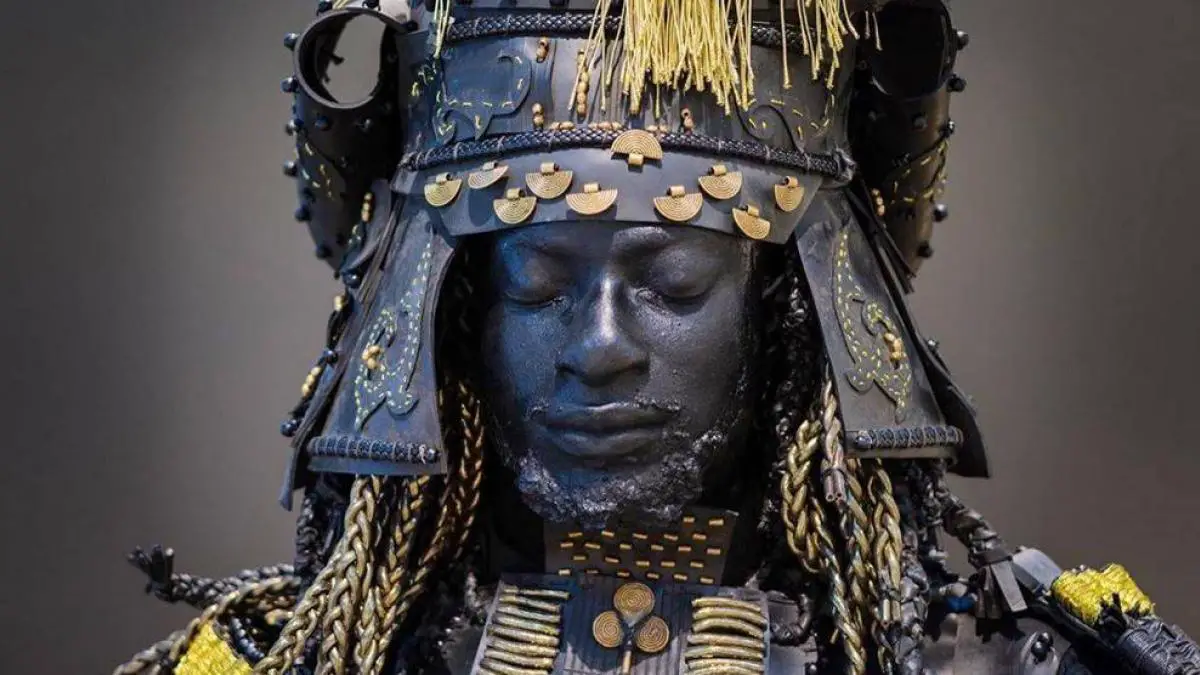In the annals of history, certain stories stand out as remarkable and unforgettable. The tale of Yasuke, the African samurai who served in 16th-century Japan, is one such story. His life, a fascinating blend of culture, warfare, and human resilience, remains relatively obscure in the West, but it deserves to be brought into the light. In this article, we will delve into the incredible journey of Yasuke, exploring his origins, his time in Japan, and the enduring legacy of this enigmatic figure.
Yasuke’s Origins
The exact details of Yasuke’s early life remain shrouded in mystery, but historians believe he was born around 1555 in Mozambique, on the southeastern coast of Africa. At that time, Mozambique was part of the Portuguese Empire, which had established a significant presence along the African coast, engaging in trade and colonization.
Yasuke’s story takes an intriguing turn when he comes to the attention of the Jesuit missionary Alessandro Valignano. Valignano, fascinated by Yasuke’s physical appearance and demeanor, decided to take him on as a servant. This marked the beginning of Yasuke’s journey from the shores of Africa to the distant land of Japan.
Arrival in Japan
In 1579, Yasuke and Valignano traveled to Japan, a country that had only recently opened its doors to the world after centuries of isolation. Yasuke’s arrival in Japan must have been a sight to behold, as his dark skin and towering stature set him apart from the Japanese population. His foreignness drew the attention of Oda Nobunaga, a powerful and ambitious warlord who would play a pivotal role in Yasuke’s life.
Nobunaga was impressed by Yasuke’s strength and presence and decided to make him a part of his retinue. Yasuke was granted the rank of samurai, a title and status that carried significant honor and responsibility in Japanese society. This unprecedented event marked Yasuke as the first and only African samurai in Japanese history.
The Life of a Samurai
Yasuke’s life as a samurai was unlike any other. He trained in the ways of the samurai, learning to wield a katana and adhere to the strict code of Bushido. Yasuke’s martial prowess, combined with his distinctive appearance, earned him the respect and admiration of both Nobunaga and his fellow samurai.
As a trusted member of Nobunaga’s inner circle, Yasuke was not just a warrior but also a confidant and protector. He fought alongside Nobunaga in numerous battles and campaigns, demonstrating his unwavering loyalty and bravery. His presence on the battlefield struck fear into the hearts of Nobunaga’s enemies, as they had never seen a warrior like him.
Yasuke and Oda Nobunaga
The relationship between Yasuke and Oda Nobunaga was one of mutual respect and camaraderie. While Yasuke was undoubtedly a valued member of Nobunaga’s retinue, his status as an outsider also placed him in a unique position. He was a foreigner in a land where foreigners were generally mistrusted, but his loyalty to Nobunaga transcended cultural boundaries.
Nobunaga, often seen as a forward-thinking and unconventional leader, embraced Yasuke’s presence as a symbol of his own progressive outlook. He appreciated Yasuke not for his foreignness but for his skills, loyalty, and character. Yasuke, in turn, found in Nobunaga a leader who recognized his worth beyond his appearance.
The Fall of Nobunaga and Yasuke’s Fate
Despite their strong bond, the partnership between Yasuke and Nobunaga came to an abrupt and tragic end. In 1582, Nobunaga was betrayed and forced to commit seppuku, a form of ritual suicide, during the Honnō-ji incident. Yasuke, who had faithfully served Nobunaga for several years, found himself without a master and in a world that was growing increasingly hostile to foreigners.
Following Nobunaga’s death, Yasuke’s fate becomes a subject of debate among historians. Some accounts suggest that he continued to serve other warlords, while others believe he returned to a more ordinary life, possibly working as a laborer or a merchant. The details of his later years remain elusive, adding to the mystique of his story.
Legacy and Historical Significance
Yasuke’s legacy extends far beyond his own lifetime. His remarkable story has inspired countless books, films, and works of art. One of the most well-known portrayals of Yasuke is in the manga and anime series “Afro Samurai,” where he is reimagined as the legendary “Black Samurai.” This modern interpretation pays homage to Yasuke’s enduring status as a symbol of cultural diversity and the resilience of the human spirit.
Moreover, Yasuke’s presence in Japanese history challenges conventional narratives of homogeneity in medieval Japan. His existence serves as a reminder of the country’s complex interactions with the outside world during a period when Japan was undergoing significant social and political changes.
The untold tale of Yasuke, the African samurai in Japan, is a story of resilience, loyalty, and cultural exchange. Yasuke’s journey from Africa to Japan, his life as a samurai, and his unique relationship with Oda Nobunaga have left an indelible mark on history. While many details of his life remain shrouded in mystery, his legacy endures as a symbol of the enduring human spirit and the power of transcending cultural boundaries.
Yasuke’s story serves as a powerful reminder that history is not a monolithic narrative but a tapestry woven together by the lives and experiences of individuals from all corners of the globe. In celebrating the life of Yasuke, we celebrate the diversity of human experience and the capacity for greatness that exists within us all.
Yasuke’s story also serves as an important reminder of the role of individuals in shaping history. In a time when prejudice and xenophobia were prevalent, Yasuke’s unique position as an African samurai challenged the prevailing norms and opened doors for future generations. His presence in Japanese society forced people to reconsider their preconceived notions and encouraged a more inclusive outlook.
The story of Yasuke has also become a symbol of inspiration for many, particularly for those who have faced adversity or discrimination. His ability to overcome barriers and achieve the esteemed status of samurai despite his foreign origins is a testament to the power of determination and resilience. Yasuke’s legacy continues to motivate individuals to pursue their dreams and break down societal barriers.
In recent years, there has been a renewed interest in Yasuke’s story, with books, documentaries, and scholarly research shedding light on his life and times. This resurgence of interest reflects a growing awareness of the importance of recognizing and celebrating diverse voices and experiences in history.
Furthermore, Yasuke’s story has sparked discussions about the broader historical context of African presence in Asia. While Yasuke’s case is extraordinary, it raises questions about the extent of African engagement with Asian cultures and societies throughout history. Researchers are now exploring these connections in more depth, uncovering a rich tapestry of interactions and exchanges that challenge conventional historical narratives.
In conclusion, the untold tale of Yasuke, the African samurai in Japan, is a captivating and inspirational story that continues to capture the imagination of people around the world. His journey from a distant corner of Africa to the heart of feudal Japan, his life as a samurai, and his lasting legacy as a symbol of diversity and resilience are a testament to the power of human potential and the capacity for individuals to transcend cultural and societal boundaries.
Yasuke’s story reminds us that history is not static; it is shaped by the remarkable lives of individuals who dare to challenge the status quo. As we celebrate Yasuke’s legacy, we are encouraged to embrace diversity, break down barriers, and recognize the contributions of people from all walks of life to the ever-evolving tapestry of our shared history. Yasuke’s story serves as a beacon of hope and an enduring testament to the limitless potential of the human spirit.
The exact location of Yasuke’s grave remains a subject of debate and mystery. After the death of his master Oda Nobunaga in 1582 and the subsequent upheaval in Japan, Yasuke’s life fades into historical obscurity, and there are no definitive records or markings that indicate the precise location of his burial site.
It is worth noting that during Yasuke’s time in Japan, samurai graves were often unmarked, and their locations were kept secret to prevent desecration by enemies or rivals. Additionally, the passage of time and various historical events may have further obscured any potential clues to Yasuke’s burial place.
While Yasuke’s remarkable story has gained renewed interest in recent years, efforts to locate his grave have remained elusive. Scholars, historians, and enthusiasts continue to explore historical records and conduct research in the hopes of shedding more light on this enigmatic figure and, perhaps one day, discovering the final resting place of the African samurai, Yasuke.














